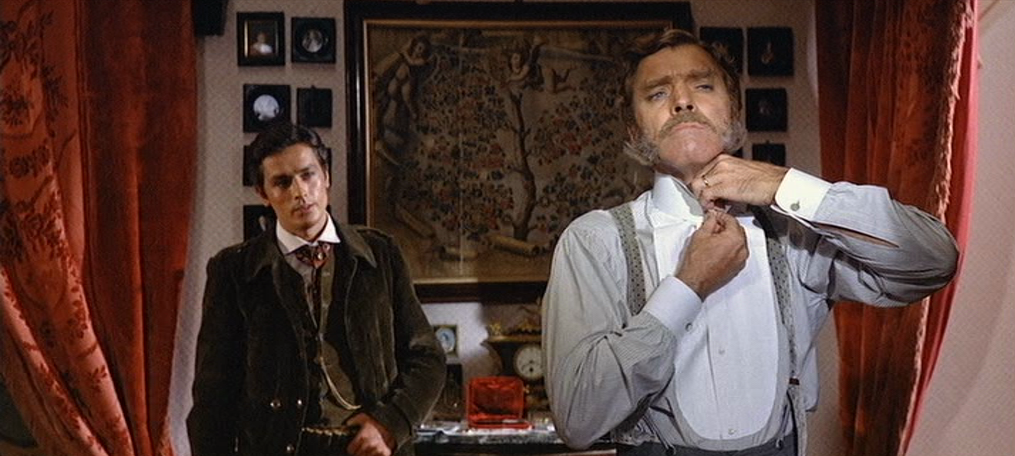A masterpiece about Sicily, meditation on eternity, and an endlessly rich historical tapestry, meticulously composed in color and on 70 mm. Luchino Visconti based the picture on the Count Giuseppe Tomasi di Lampedusa’s posthumously published novel, about a Sicilian prince at the time of the Italian unification, or Risorgimento, who steps away from power and influence because he realizes that the life he and his family have led is coming to an end, that he has to get out of the way for younger and more ambitious men like his nephew Tancredi. Visconti and his fellow screenwriters (there were four of them, including his frequent collaborators Suso Cecchi D’Amico and Enrico Medioli) took Lampedusa’s novel and fashioned a whole new work on a grand scale, an epic but of a very unusual type. Time itself is the protagonist of The Leopard: the cosmic scale of time, of centuries and epochs, on which the prince muses; Sicilian time, in which days and nights stretch to infinity; and aristocratic time, in which nothing is ever rushed and everything happens just as it should happen, as it has always happened. The landscapes, the extraordinary settings with their painstakingly selected objects and designs, the costumes, the ceremonies and rituals—it’s all at the service of deepening our sense of time and large-scale change, and the entire picture culminates in an hour-long sequence at a ball in which you can feel, through the eyes of the prince, an entire way of life (one that Visconti himself knew quite well) in the process of fading away. Like Contempt, The Leopard was initially overshadowed by the circumstances around it, namely, the casting of Burt Lancaster as the prince. Here in America, we saw the picture in a shortened and dubbed version (Lancaster was speaking English) that was a little unsatisfying: you could clearly see that the movie Visconti had intended wasn’t quite all there, and it was jarring to watch Lancaster speaking in his normal voice surrounded by Alain Delon and Claudia Cardinale and Paolo Stoppa dubbed into American English. When I got to see the whole thing, I was astonished by the picture and by Lancaster, who gives all of himself to the role and to the world of the film. Visconti had wanted Laurence Olivier, and he was initially very curt with Lancaster, but the actor won him over and they became lifelong friends. I could go on and on about The Leopard. It’s a film that has become more and more important to me as the years have gone by.
Martin Scorsese
